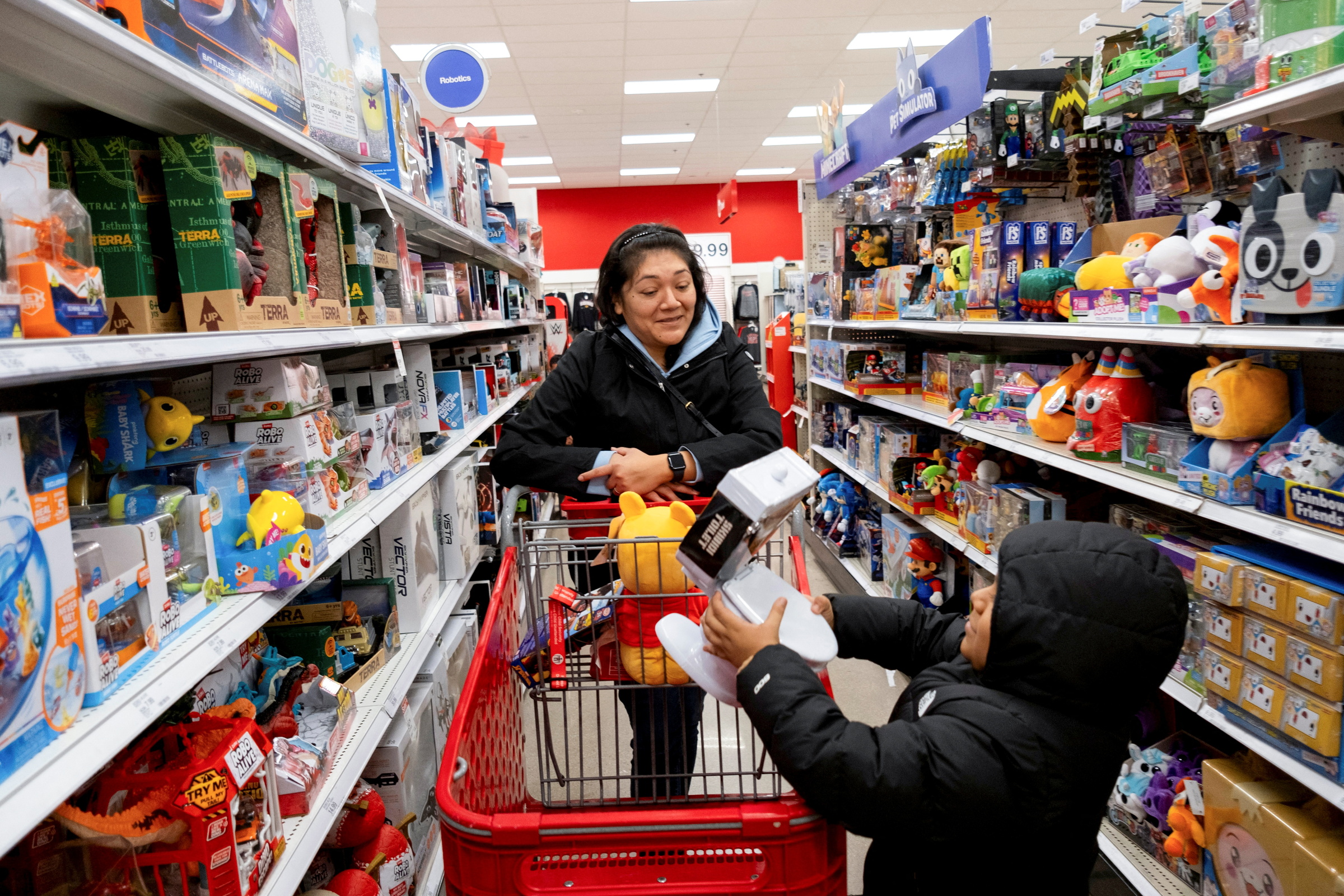In the midst of summer, US businesses are struggling to finalize orders and set prices for the winter holiday season. Balsam Hill, an online retailer specializing in artificial Christmas trees and decorations, plans to reduce its new product offerings for the holidays. This is due to the anticipated volatility of import tariffs, which President Trump has repeatedly introduced, postponed, and adjusted.
"We're spending all our time readjusting our order book, sourcing, and delivery schedules," said Mac Harman, CEO of Balsam Brands, Balsam Hill's parent company. He admitted uncertainty about which products to promote in the current climate.
Months of uncertainty surrounding which countries' products will be subject to increased import tariffs and the extent of these adjustments have cast a shadow over the 2025 holiday shopping season in the US. Typically, retailers begin planning for this peak sales period in January and finalize most orders by the end of June.
However, the recent erratic tariff adjustments have forced them to recalculate. To avoid the risks associated with high tariffs and excess inventory, some companies have streamlined their new product lines. Others have set preliminary prices, but many items are expected to see price increases, with the exact amount depending on the retaliatory tariff package taking effect next month.
 |
Customers shop for toys at a Target store in Chicago, US on 26/11/2024. Photo: Reuters |
Customers shop for toys at a Target store in Chicago, US on 26/11/2024. Photo: Reuters
The US toy industry, which sources almost 80% of its products from China, has been particularly affected. Companies usually ramp up production in April, but this year the process was delayed until the end of May, after President Trump imposed a 145% tariff on goods "made in China". The tariffs were later significantly reduced thanks to a framework agreement between the US and China, but the uncertainty continues to impact the upcoming holiday season.
Greg Ahearn, president and CEO of The Toy Association, said production activity at small and medium-sized companies has declined sharply compared to the same period last year. Meanwhile, toy suppliers from China and other countries have been issuing price increase notices. For example, Schylling, which produces Needoh, the Care Bear collection, and modern versions of nostalgic toys like My Little Pony, has raised its order prices by 20%.
Dean Smith, co-owner of the JaZams toy store chain in Princeton (New Jersey) and Lahaska (Pennsylvania), said wholesale prices for some products have increased by 20%. However, passing on the full increase to consumers could discourage sales.
Therefore, he is seeking to "maintain reasonable profit margins without pushing prices beyond what consumers can bear". He has opted to import the less expensive Crazy Forts construction toy and has eliminated the children's version of the card game Anomia, as he doubts customers would accept the new price. "I've had to cut out half the products I normally order," he said.
According to the US Chamber of Commerce, over 97% of US buyers importing goods are small businesses. Currently, most of them are facing difficulties due to tariffs that have dramatically increased import costs. The National Retail Federation’s (NRF) interviews with 40 national retailers earlier this month revealed that businesses are being forced to raise prices, narrow product selections, or absorb losses.
Kathy Knack, owner of Kathy Knack Interiors in Virginia, imports goods from Vietnam, China, and Mexico. "With the uncertainty of tariffs—40% one minute and 145% the next—my suppliers can't determine their prices, and neither can I," she said.
Fluctuating tariffs have made operations difficult and planning, pricing, or expansion nearly impossible. Mei-Lon Jimenez and Toni Jimenez, co-founders of the Chica Beauty cosmetics brand in Texas, said that most of their products are made in the US, but some inputs still have to be imported, and their prices have increased. "Every time we adjust our plans, it's like aiming at a moving target," Jimenez commented.
The US retail industry may have to react passively to ultimatums and temporary tariff extensions from the White House. Last week, President Trump again adjusted tariffs on imports from Brazil, the EU, Mexico, and other major trading partners, announcing they would take effect on 1/8.
Ahead of that deadline, the Port of Los Angeles recorded its busiest June in its 117-year history, as businesses raced to import goods for the Christmas season. Port Executive Director Gene Seroka said July imports were also strong. "We are seeing a surge in imports ahead of potential tariff increases later this summer," he said.
Since the beginning of the year, the pace of activity at the Port of Los Angeles has fluctuated with the president's tariff announcements, slowing down when he raised tariffs and surging when the policy was paused.
"For consumers, this means fewer choices and higher prices as the holiday season approaches," Seroka said.
Dean Smith at JaZams revealed that they placed holiday orders two months earlier than usual for "essential items to secure suitable prices". They also doubled their warehouse space. He acknowledged that maintaining product diversity is becoming increasingly difficult.
"Our goal is to create joy with our customers, and this year we will try our best to do that. But the reality is, we don't have all the products consumers want," he admitted.
Phien An (according to AP, NRF)












